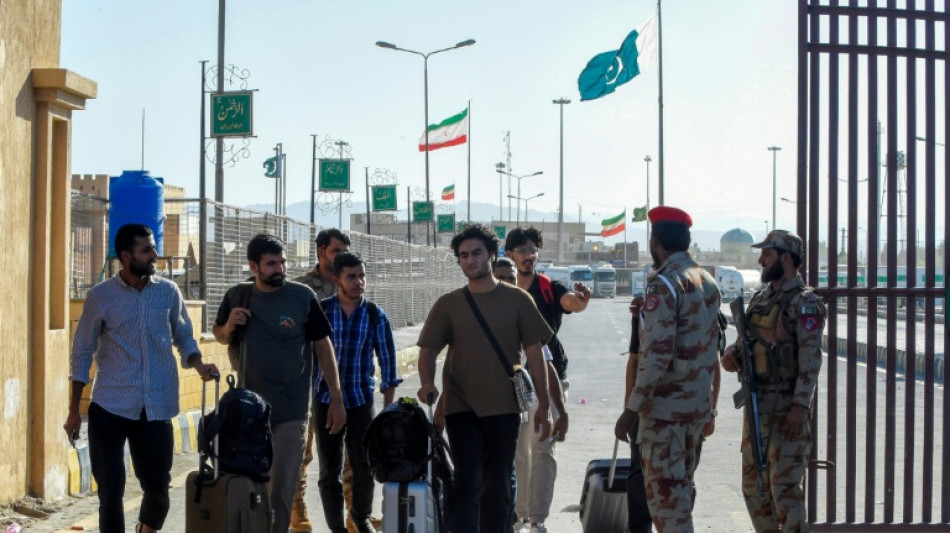
-
 Autopsy rules out 'trauma' in Frenchman livestream death
Autopsy rules out 'trauma' in Frenchman livestream death
-
Liverpool's Frimpong out for several weeks with hamstring injury

-
 EU gets 15% US tariff for cars, but fails to get wine reprieve
EU gets 15% US tariff for cars, but fails to get wine reprieve
-
Leverkusen rebuild continues with Bade and Echeverri signings

-
 Ghana singer Shatta Wale held in US fraud probe over Lamborghini purchase
Ghana singer Shatta Wale held in US fraud probe over Lamborghini purchase
-
Wales skipper Callender passed fit for Women's Rugby World Cup opener against Scotland

-
 Only goal is to win, says ever-competitive veteran Fraser-Pryce
Only goal is to win, says ever-competitive veteran Fraser-Pryce
-
Maresca adamant Fofana 'very happy' at Chelsea

-
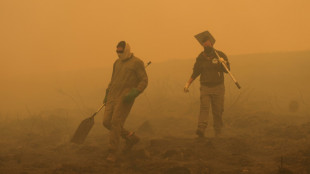 Record EU wildfires burnt more than 1 mn hectares in 2025: AFP analysis
Record EU wildfires burnt more than 1 mn hectares in 2025: AFP analysis
-
Hurricane Erin brings coastal flooding to N. Carolina, Virginia
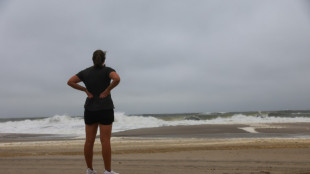
-
 Stocks slide as investors await key Fed speech
Stocks slide as investors await key Fed speech
-
EU gets 15% US tariff for cars, fails to secure wine reprieve

-
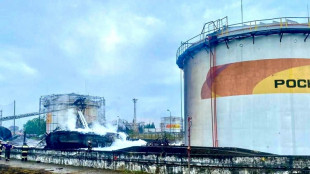 Russian fuel prices surge after Ukraine hits refineries
Russian fuel prices surge after Ukraine hits refineries
-
Maguire feels it will be 'silly' to leave Man Utd now

-
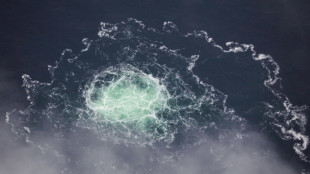 Ukrainian suspect arrested in Italy over Nord Stream blasts
Ukrainian suspect arrested in Italy over Nord Stream blasts
-
England include ex-skipper Knight in Women's World Cup squad as Cross misses out

-
 Walmart lifts outlook for sales, earnings despite tariffs
Walmart lifts outlook for sales, earnings despite tariffs
-
UK sees record asylum claims as row brews over housing
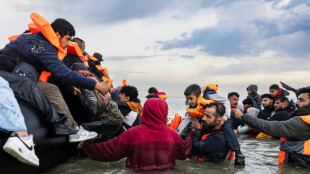
-
 Swiss international Okafor move to Leeds heralds new EPL record
Swiss international Okafor move to Leeds heralds new EPL record
-
Microsoft re-joins handheld gaming fight against Nintendo's Switch

-
 McReight to captain Wallabies against Springboks
McReight to captain Wallabies against Springboks
-
Taiwanese boxer Lin agrees to gender test for world championships

-
 Stocks slip as investors await key Fed speech
Stocks slip as investors await key Fed speech
-
Hong Kong mogul Jimmy Lai's 'punditry' not criminal: lawyer

-
 Bournemouth sign 'proven winner' Adli from Leverkusen
Bournemouth sign 'proven winner' Adli from Leverkusen
-
Israel pounds Gaza City as military takes first steps in offensive
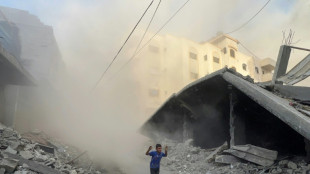
-
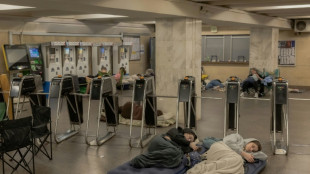 First security guarantees, then Putin summit, Zelensky says
First security guarantees, then Putin summit, Zelensky says
-
Suspended Thai PM testifies in court case seeking her ouster

-
 Shilton congratulates Brazilian goalkeeper Fabio on breaking record
Shilton congratulates Brazilian goalkeeper Fabio on breaking record
-
Markets mixed as investors await key Fed speech

-
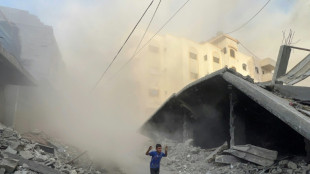 Israel pounds Gaza City after offensive gets green light
Israel pounds Gaza City after offensive gets green light
-
Fraser-Pryce seeks Brussels boost ahead of Tokyo worlds

-
 Asian markets mixed as investors await key speech
Asian markets mixed as investors await key speech
-
Ten hurt, 90 arrested as match abandoned following fan violence in Argentina
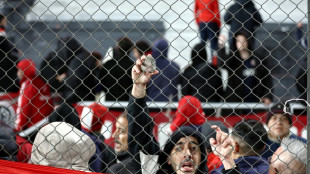
-
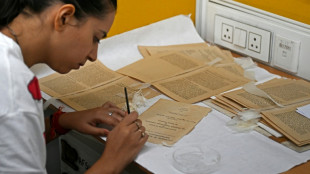 Indian heritage restorers piece together capital's past
Indian heritage restorers piece together capital's past
-
Australian Rules player suspended for homophobic slur

-
 Online behaviour under scrutiny as Russia hunts 'extremists'
Online behaviour under scrutiny as Russia hunts 'extremists'
-
Malaysia rules out return of F1 over costs
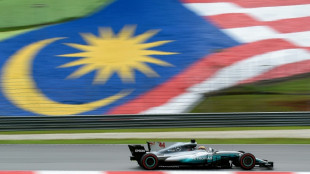
-
 German firm gives 'second life' to used EV batteries
German firm gives 'second life' to used EV batteries
-
Wallabies great Will Genia announces retirement at 37

-
 South Africa spinner Subrayen cited for suspect bowling action
South Africa spinner Subrayen cited for suspect bowling action
-
Menendez brothers face parole board seeking freedom after parents murders

-
 Weaponising the feed: Inside Kenya's online war against activists
Weaponising the feed: Inside Kenya's online war against activists
-
Africa could become 'renewable superpower', says Guterres

-
 Suspended Thai PM in court for case seeking her ouster
Suspended Thai PM in court for case seeking her ouster
-
Errani, Vavassori retain US Open mixed doubles title in revamped event

-
 Surging tourism is polluting Antarctica, scientists warn
Surging tourism is polluting Antarctica, scientists warn
-
Ten Hag hoping for fresh start at rebuilding Leverkusen

-
 Five players to watch at the Women's Rugby World Cup
Five players to watch at the Women's Rugby World Cup
-
Suarez fills Messi void as Inter Miami beat Tigres 2-1

| RBGPF | 0% | 73.27 | $ | |
| CMSC | 0.21% | 23.49 | $ | |
| GSK | 0.66% | 40.336 | $ | |
| NGG | -0.71% | 71.57 | $ | |
| RIO | 0.66% | 61.02 | $ | |
| BTI | 0.26% | 59.165 | $ | |
| CMSD | 0.05% | 23.702 | $ | |
| SCS | -0.31% | 16.13 | $ | |
| RELX | -0.89% | 48.26 | $ | |
| VOD | -0.52% | 11.839 | $ | |
| BP | -0.04% | 33.865 | $ | |
| BCE | -0.7% | 25.56 | $ | |
| AZN | 0.37% | 80.815 | $ | |
| JRI | 0.07% | 13.339 | $ | |
| BCC | -0.23% | 84.31 | $ | |
| RYCEF | 1.36% | 13.94 | $ |

Relieved Pakistanis recall 'horrifying nights' as Israel, Iran trade strikes
Mohammad Hassan anxiously returned to Pakistan from neighbouring Iran this week after witnessing drones, missiles, and explosions tear through Tehran's sky during what he called long, "horrifying nights".
The 35-year-old University of Tehran student is one of about 3,000 Pakistanis who, according to the Ministry of Foreign Affairs, have returned home since Israel launched its aerial war against its long-time enemy last week.
Governments around the world are scrambling to evacuate their nationals caught up in the rapidly spiralling conflict as Israel and Iran trade missile and drone strikes.
"I was in the city centre where most of the strikes took place and even one of the student dormitories was attacked and luckily no one was dead, but students were injured," Hassan said.
There are more than 500 Pakistani students at his university alone, he said, all of them on their way "back home".
"Those days and nights were very horrifying... hearing sirens, the wailing, the danger of being hit by missiles. As one peeped out the window in the night, you could see drones, missiles with fire tails," he told AFP.
- Ghost town -
Pakistan and Iran have a shaky diplomatic relationship. They bombed each other's territory little more than a year ago, both claiming to target rebels using their neighbour's land to launch attacks.
Yet they have never suspended trade, tourism and academic ties.
Iranian consulates across Pakistan have stepped up efforts to promote their universities.
Between 25 million and 35 million Pakistani Shiite Muslims also hope to make at least one pilgrimage in their lifetime to holy sites in Iran, foremost among them the sacred city of Qom.
Mohammad Khalil, a 41-year-old petroleum engineer, left Tehran three days ago, the capital of the Islamic Republic looking like a ghost town as residents sheltered indoors and families fled.
"In the last two days, I saw people moving out of the city in different vehicles with necessary commodities," Khalil said.
Abdul Ghani Khan sells medical equipment in his hometown of Peshawar in northwest Pakistan and travels to Iran regularly for supplies.
He had been in Tehran for a week when the first Israeli missiles fell on Friday. Iran and Israel have traded heavy missile fire in the days since, raising fears of a wider regional conflict.
Pakistan is in a difficult position as the only Muslim-majority country with nuclear weapons. It, like Iran, does not recognise Israel but is also a major ally of the United States.
Khan had to make the journey home by road because the airspace is now closed. Pakistan has also shut its border crossings with Iran to all except Pakistanis wanting to return home.
"We saw drones, red lights of anti-aircraft guns and I spotted one building catch fire," Khan said.
- 'Offering prayer' -
Mohammad Asif, a lawyer from Lahore in Pakistan's east, heard about the air strikes while on a pilgrimage in Qom.
He wasn't initially afraid and continued his pilgrimage to Mashhad in Iran's northeast, home to the golden-domed Imam Reza shrine.
That was until Israeli strikes hit the airport in Mashhad, nearly 1,000 kilometres (620 miles) from the Pakistani border.
Samreen Ali was also in Mashhad but, like Asif, cut her trip short and returned with her husband and 15-year-old son.
She was praying in a mosque in Mashhad when Israel struck the city.
Ali said she had visited Iran nine times before on pilgrimages and never imagined witnessing war there.
"I was offering prayer when I heard two explosions," she told AFP.
She then noticed she wasn't receiving messages on her phone and assumed that "communication was being restricted... because of the war".
Syed Saqib, 46, was in Qom and had to travel 500 kilometres (310 miles) by bus southeast to Yazd.
"We had to take alternative routes, spend an entire night waiting at a bus terminal," Saqib said.
They then boarded buses to Zahedan, a city near the border with Pakistan's Balochistan province. A relieved Saqib recalled making the border crossing at Taftan, surrounded by families carrying heavy luggage.
L.AbuAli--SF-PST
